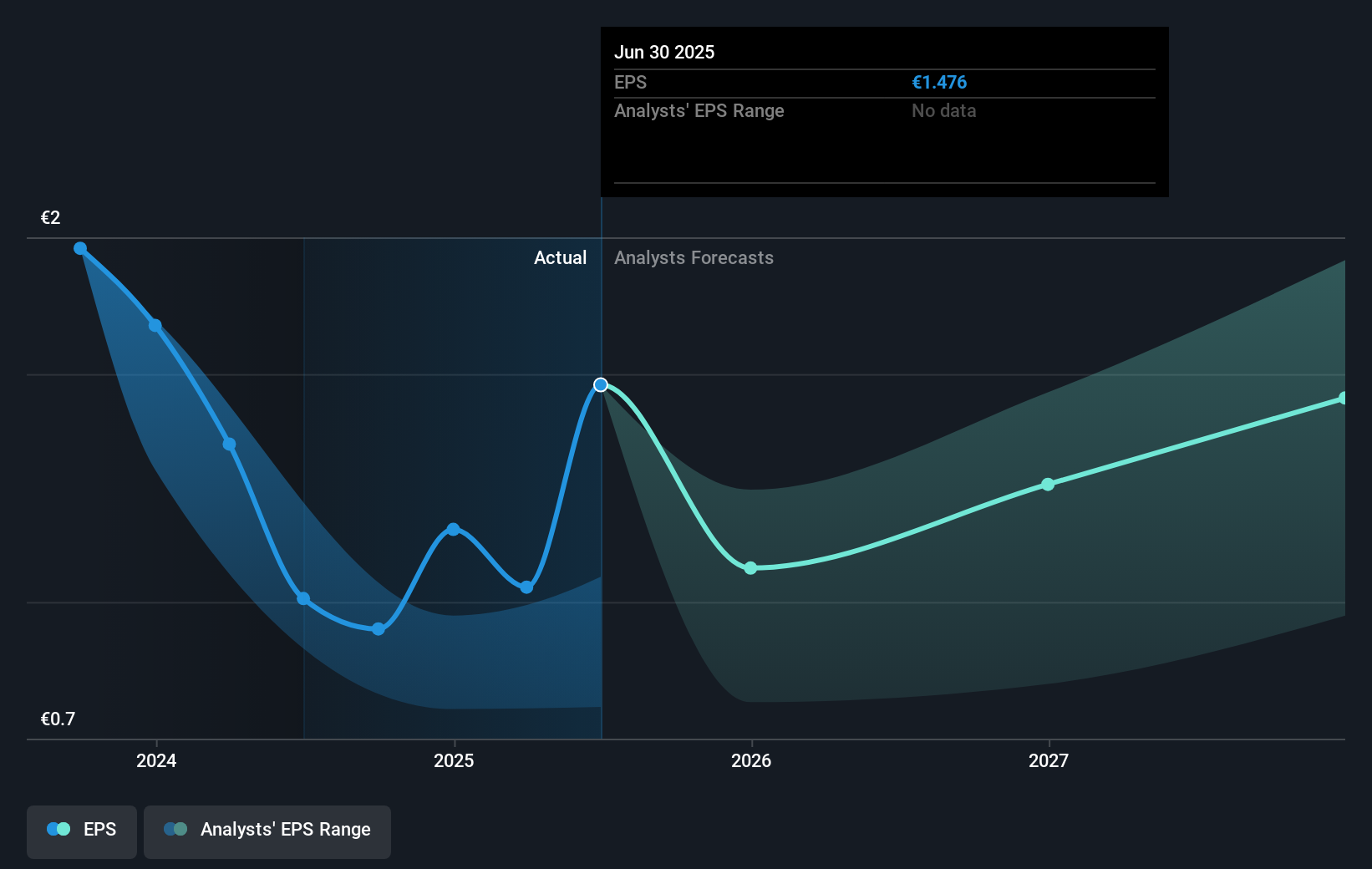Investors one-year returns in Deutsche Lufthansa (ETR:LHA) have not grown faster than the company's underlying earnings growth
Passive investing in index funds can generate returns that roughly match the overall market. But if you pick the right individual stocks, you could make more than that. To wit, the Deutsche Lufthansa AG (ETR:LHA) share price is 35% higher than it was a year ago, much better than the market return of around 15% (not including dividends) in the same period. So that should have shareholders smiling. And shareholders have also done well over the long term, with an increase of 34% in the last three years.
Although Deutsche Lufthansa has shed €379m from its market cap this week, let's take a look at its longer term fundamental trends and see if they've driven returns.
There is no denying that markets are sometimes efficient, but prices do not always reflect underlying business performance. One flawed but reasonable way to assess how sentiment around a company has changed is to compare the earnings per share (EPS) with the share price.
During the last year Deutsche Lufthansa grew its earnings per share (EPS) by 47%. It's fair to say that the share price gain of 35% did not keep pace with the EPS growth. Therefore, it seems the market isn't as excited about Deutsche Lufthansa as it was before. This could be an opportunity. This cautious sentiment is reflected in its (fairly low) P/E ratio of 5.39.
You can see how EPS has changed over time in the image below (click on the chart to see the exact values).

It is of course excellent to see how Deutsche Lufthansa has grown profits over the years, but the future is more important for shareholders. If you are thinking of buying or selling Deutsche Lufthansa stock, you should check out this FREE detailed report on its balance sheet.
What About Dividends?
As well as measuring the share price return, investors should also consider the total shareholder return (TSR). Whereas the share price return only reflects the change in the share price, the TSR includes the value of dividends (assuming they were reinvested) and the benefit of any discounted capital raising or spin-off. So for companies that pay a generous dividend, the TSR is often a lot higher than the share price return. As it happens, Deutsche Lufthansa's TSR for the last 1 year was 42%, which exceeds the share price return mentioned earlier. This is largely a result of its dividend payments!
A Different Perspective
It's good to see that Deutsche Lufthansa has rewarded shareholders with a total shareholder return of 42% in the last twelve months. That's including the dividend. That's better than the annualised return of 6% over half a decade, implying that the company is doing better recently. In the best case scenario, this may hint at some real business momentum, implying that now could be a great time to delve deeper. While it is well worth considering the different impacts that market conditions can have on the share price, there are other factors that are even more important. Case in point: We've spotted 1 warning sign for Deutsche Lufthansa you should be aware of.
If you would prefer to check out another company -- one with potentially superior financials -- then do not miss this free list of companies that have proven they can grow earnings.
Please note, the market returns quoted in this article reflect the market weighted average returns of stocks that currently trade on German exchanges.
New: Manage All Your Stock Portfolios in One Place
We've created the ultimate portfolio companion for stock investors, and it's free.
• Connect an unlimited number of Portfolios and see your total in one currency
• Be alerted to new Warning Signs or Risks via email or mobile
• Track the Fair Value of your stocks
Have feedback on this article? Concerned about the content? Get in touch with us directly. Alternatively, email editorial-team (at) simplywallst.com.
This article by Simply Wall St is general in nature. We provide commentary based on historical data and analyst forecasts only using an unbiased methodology and our articles are not intended to be financial advice. It does not constitute a recommendation to buy or sell any stock, and does not take account of your objectives, or your financial situation. We aim to bring you long-term focused analysis driven by fundamental data. Note that our analysis may not factor in the latest price-sensitive company announcements or qualitative material. Simply Wall St has no position in any stocks mentioned.
About XTRA:LHA
Deutsche Lufthansa
Operates as an aviation company in Germany and internationally.
Undervalued with excellent balance sheet.
Similar Companies
Market Insights
Community Narratives



